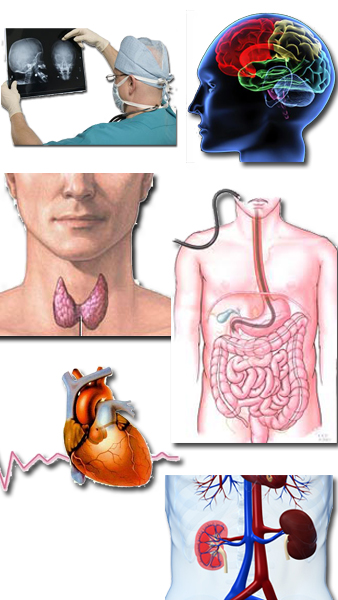Neurology deals with the diagnosis and treatment of all categories of disease involving the central and peripheral nervous system. A neurologist is a physician specializing in neurology and trained to investigate, or diagnose and treat neurological disorders. Structural, biochemical or electrical abnormalities in the brain, spinal cord or other nerves can result in a range of symptoms such as paralysis, muscle weakness, poor coordination, loss of sensation, seizures, confusion, pain and altered levels of consciousness. Some of the associated neurological conditions include Epilepsy, Alzheimer’s disease, Autism, Bipolar disorder, Chronic fatigue syndrome, Chronic pain, Dementia, Dyslexia to name a select few.





